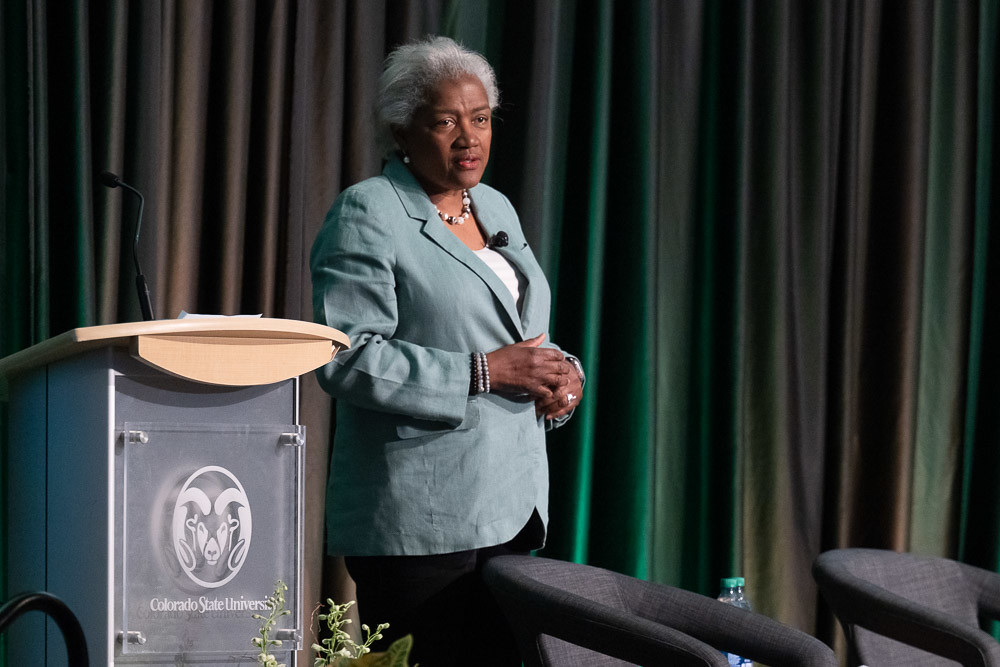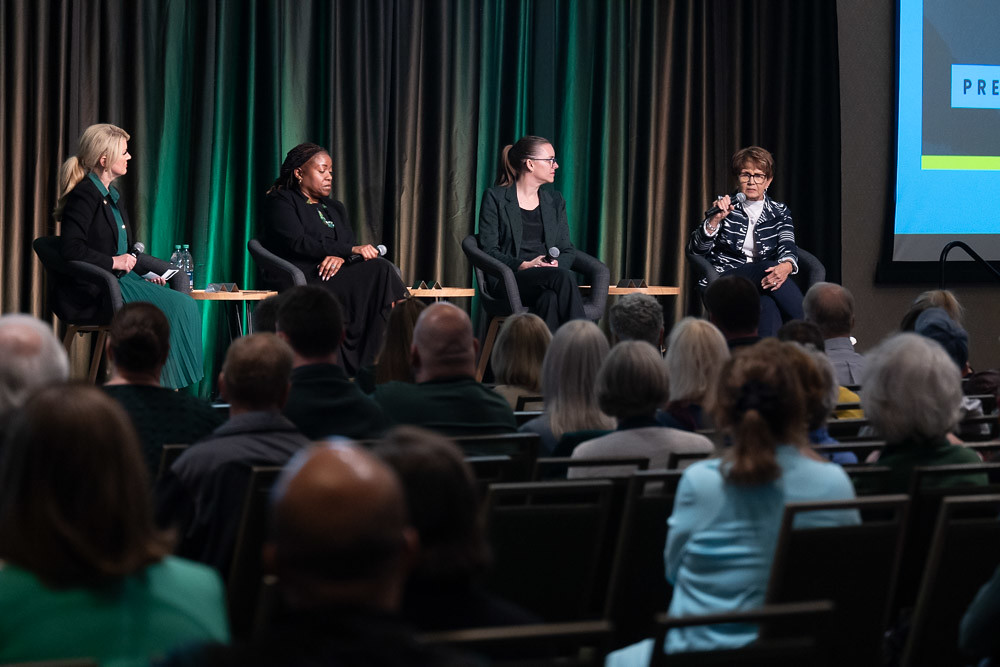
When Hurricane Katrina ravaged her family’s home in New Orleans, Democratic campaign strategist Donna Brazile found herself working alongside Republican George W. Bush – the very president she had attempted to defeat in the 2000 election.
During a wide-ranging discussion at Colorado State University on April 30, the former campaign manager for the Gore-Lieberman campaign detailed how she decided to set aside her partisanship and dislike of conservative politics at that moment because she realized rebuilding her community after the disaster was more important.
George W. Bush “didn’t want me to give him the problem but also the solution – he wanted me to be an advocate for something instead of just being against a position,” said Brazile, who went on to praise the 43rd president’s response to Katrina in one of her books.
Brazile visited the CSU campus as part of the fourth annual Gather: Conversations to Inspire Event presented by Women and Philanthropy. This discussion was part of the Thematic Year of Democracy, a university-wide initiative that invited members of the campus community and beyond to participate in a diverse array of events centered around preparing the next generation to participate in all facets of civil society.
Other speakers have included U.S. Rep. Ken Buck (R-Colo.), actress and activist Jane Fonda, U.S. Sen. Michael Bennet (D-Colo.) and former U.S. Sen. Cory Gardner R-Colo.).
A cornerstone of Brazile’s discussion focused on the importance of democracy and the need to work with people you disagree with in order to make tangible progress.
“We all have principles,” she said. “It’s another thing to believe; it’s another thing to believe in one another and believe in the principles of each and every American.”
Brazile said her own beliefs were forged when her grandmother told her that Martin Luther King Jr. had been assassinated. Brazile talked about growing up in the segregated South, and how that moment was a wakeup call for her to fight for the things that matter.
“His dream shall never die, because the day we take our eyes off the prize … we will lose our freedom,” she said. “The North Star has always been simple to explain: Democracy should be contagious. We should all want to exercise our freedom to believe in one another, to trust one another.”
During each of the Thematic Year of Democracy discussions, CSU President Amy Parsons asked the speakers what advice they’d give to the students who would be voting in their very first presidential election this fall.
Brazile pointed to the recent elections that have only been decided by tens of thousands of votes and said the millions of young people who are submitting their first ballots might be the deciding factor.
“Your generation is going to help determine the future, and I am so proud of you,” she said. “ … It’s time for you to rise up and vote. Why you? Because there’s no one better.”
What does democracy mean on a university campus?

Following Brazile’s remarks, CSU President Amy Parsons moderated a panel featuring three other CSU leaders: Kauline Cipriani, the vice president for inclusive excellence, Katie Knobloch, the associate director of the Center for Publication Deliberation, and Kathay Rennels, a special adviser to the chancellor for urban-rural initiatives for the CSU System.
The four women discussed how their identities shaped their approaches to democracy, as well as how CSU can continue to foster free speech on campus during what could be a contentious election year.
“I think universities like ours are foundational to democracy across the country,” Parsons said.